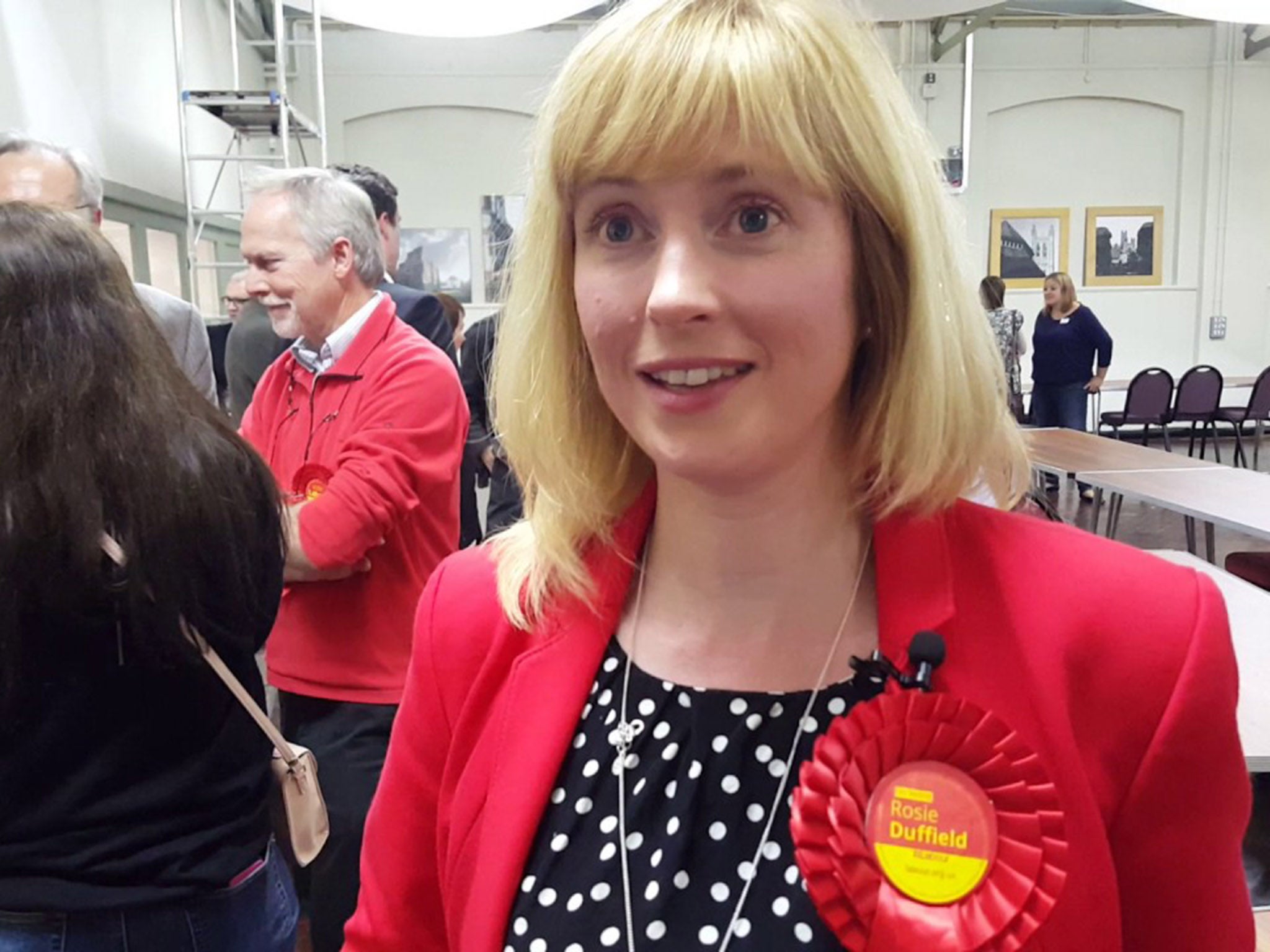The view that Labour MPs are ‘desperate’ to rejoin the EU is a huge problem for Keir Starmer
Rosie Duffield was foolish to say it out loud, but everyone knows it’s true – and it has publicly identified the Labour leader’s biggest election weakness in advance, writes John Rentoul


Rosie Duffield, the MP for Canterbury, Labour’s most surprising gain in the 2017 election, has said out loud what everyone knows to be true: that most of her colleagues want to rejoin the EU.
In an interview with HuffPost, she said “the majority of us” Labour MPs “are still desperate to rejoin if we possibly can, I think, at heart”. She recognised that this “does depend on negotiating with Labour Party policy” and said: “We’re not talking in the next five years, realistically.”
Her contribution will not be welcomed by Keir Starmer, who asked his MPs to vote for Boris Johnson’s Brexit trade deal last week – Duffield was one of the backbenchers who defied the instruction and abstained. “Most people on the front bench who voted for this deal last week did it with a very heavy heart and they haven’t given up either,” she said.
Starmer made two arguments for voting for the deal. One was that the only alternative by then was a no-deal exit; more quietly, he pressed his party to accept that Brexit had happened, to come to terms with it and to move on.
Duffield’s interview shows why that will not be possible. “We will try and shift the leadership, as and when it needs to shift, towards rejoining,” she said. If that sounded like a direct challenge to Starmer, she didn’t back away from it, saying that he might be gone in five years’ time: “Possibly we might even have a different sort of set-up, a different leader by then, who knows.”
It sounded as if she is not expecting to return to the front bench (Starmer carried out a small reshuffle yesterday, promoting four MPs to junior shadow ministerial posts); she resigned in protest at Jeremy Corbyn’s EU policy in 2018, was brought back by Starmer, but resigned again last year because she broke coronavirus rules.
The significance of what she said is not that Starmer’s leadership is under serious threat; it is that she said what he would rather was not said. The Labour Party fought the last election on a policy – for which Starmer was mainly responsible – of holding another EU referendum, which the overwhelming majority of the party and its MPs saw as a chance to stay in the EU. (What the party’s nominal leader thought remains an impenetrable mystery to this day.)
Starmer and the party now say that they lost the election; that they need to learn from that and move on. But the trouble with EU membership is that it is a deep question of principle. You cannot one moment say that being in the EU is best and then the next moment say it doesn’t matter.
The voters will know at the next election that, “at heart”, as Duffield put it, Starmer and most of his team still believe it would be better for Britain to be in the EU. It may be inconvenient for Starmer that Duffield has said it, but all she is doing is drawing attention to what will be a big theme in the next election, whether or not Labour MPs admit it publicly.
Whatever Labour’s EU policy at the next election – whether it’s no change, to rejoin the customs union, or to rejoin the single market and free movement – the Conservative charge will be that, “at heart”, Starmer’s aim is to rejoin the EU itself. He won’t be able to contradict it.
It may be that rejoining will be a wildly popular policy by then, although it seems unlikely. It is more probable that a slightly closer relationship with the EU market would not actually be a vote-losing policy. But it is not likely to win back Leave-supporting former Labour voters in marginal seats.
Duffield, representing a university city, proposes an alternative strategy that sums up the party’s dilemma at the next election: “The kind of liberal elite if you like, represented by people like me, they still vote and campaign and they march and they make their voices heard – so Keir can’t afford to completely dismiss that group of people as well.”
Not only are there a lot of “liberal elite” voters, but they believe, deep down, what Labour MPs believe. Starmer is trying to do something harder even than Tony Blair, who had to persuade the party to ditch something – mass nationalisation – that it didn’t, in its heart of hearts, believe in.
At the next election, Starmer will be under attack for what he really does believe in. This doesn’t apply only to the EU, but to, say, another Scottish independence referendum. Most Labour people are soft on Scottish nationalism, and soft on the causes of Scottish nationalism.
They think it is nice left-wing nationalism and quite different from horrid right-wing Brexit nationalism, and so if a deal with the Scottish National Party is needed to sustain a Labour government in office, they are secretly relaxed about it. Starmer gave the game away a year ago, during the Labour leadership campaign, when he said he did not believe it would be “right to block anything” that the Scottish parliament wanted.
Rosie Duffield has performed a public service in identifying Starmer’s biggest weakness in advance: fighting an election saying one thing when everyone knows he really believes something different.






Join our commenting forum
Join thought-provoking conversations, follow other Independent readers and see their replies
Comments